Introduction to Video Game Programmer Career
In the dynamic and ever-evolving world of technology, the role of a video game programmer is both challenging and rewarding. If you’re passionate about gaming and aspire to contribute to the creation of immersive virtual worlds, becoming a video game programmer might be the perfect career path for you. This comprehensive guide will walk you through the essential steps to embark on this exciting journey.
Understand the Basics
To become a proficient video game programmer, it’s crucial to have a solid understanding of the fundamentals. Start by learning programming languages commonly used in game development such as C++, C#, or Java. Online platforms like Codecademy, Udemy, and Khan Academy offer excellent courses for beginners.
Pursue a Relevant Education
While a formal education is not always mandatory, having a degree in computer science, software engineering, or a related field can give you a competitive edge. Many successful game programmers hold bachelor’s or master’s degrees, as these programs provide a structured curriculum covering algorithms, data structures, and software development principles.
Build a Strong Foundation in Mathematics
Video game programming involves complex mathematical concepts, such as geometry, trigonometry, and linear algebra. A solid mathematical foundation is essential for tasks like designing game physics, rendering graphics, and implementing artificial intelligence. Online resources like Khan Academy and MIT OpenCourseWare can help you strengthen your math skills.
Develop Programming Skills
Proficiency in programming languages is a cornerstone of game development. Mastering languages like C++ is particularly important, as it is widely used in the industry. Practice coding regularly, work on small projects, and participate in coding challenges on platforms like GitHub to build a strong portfolio.
Learn Game Development Tools and Engines
Familiarize yourself with popular game development tools and engines like Unity or Unreal Engine. These platforms simplify the game development process, allowing you to focus on programming game logic rather than reinventing the wheel. Online documentation, tutorials, and forums can be invaluable resources for learning these tools.
Specialize in a Niche
Video game development encompasses various specialties, including graphics programming, gameplay programming, and artificial intelligence. Identify your interests and strengths, then specialize in a niche that aligns with your passion. Specialization enhances your expertise and makes you a valuable asset to game development teams.
Build a Portfolio
Create a portfolio showcasing your programming skills and projects. Include a variety of game-related projects that highlight different aspects of your abilities, such as graphics rendering, physics simulations, and AI implementation. A well-curated portfolio is often more compelling than a resume alone.
Participate in Game Jams
Game jams are events where developers collaborate to create games within a short time frame. Participating in these events not only hones your skills but also provides opportunities to network with other game developers. Platforms like Global Game Jam and Ludum Dare host such events regularly.
Stay Updated with Industry Trends
The gaming industry evolves rapidly, with new technologies and trends emerging regularly. Stay informed about the latest developments, attend conferences, and engage with the gaming community on forums and social media. Continuous learning is key to staying relevant in the competitive field of video game programming.
Apply for Internships and Entry-Level Positions
Gain practical experience by applying for internships or entry-level positions in game development studios. Real-world experience is invaluable, and it allows you to apply your skills in a professional setting while learning from experienced developers.
Build a Professional Network
Networking is crucial in any industry, and the gaming world is no exception. Attend industry events, join online forums, and connect with professionals in the field. Building a strong network can open doors to job opportunities, mentorship, and collaboration on exciting projects.

Best Online Education Platforms to Become a Video Game Programmer
Embarking on the journey to become a video game programmer is now more accessible than ever, thanks to the wealth of online education platforms. By choosing the right platform based on individual preferences and learning styles, aspiring developers can equip themselves with the skills needed to thrive in the competitive and ever-evolving world of video game development.
Udemy
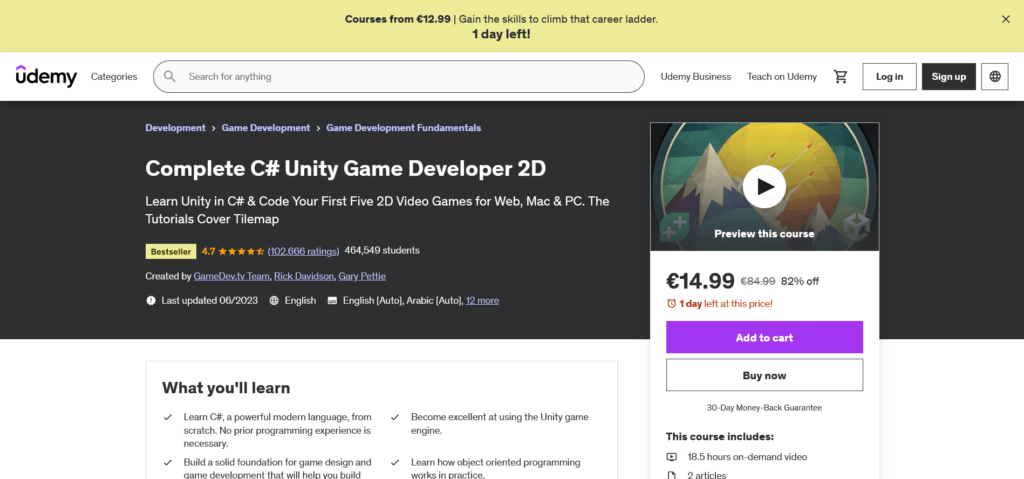
Udemy stands as a prominent online learning platform, offering a plethora of affordable courses for budding video game programmers. From beginner-friendly introductions to advanced courses in C++ programming and game development with Unity or Unreal Engine, Udemy provides a diverse range of options to suit every learner’s needs.
Coursera
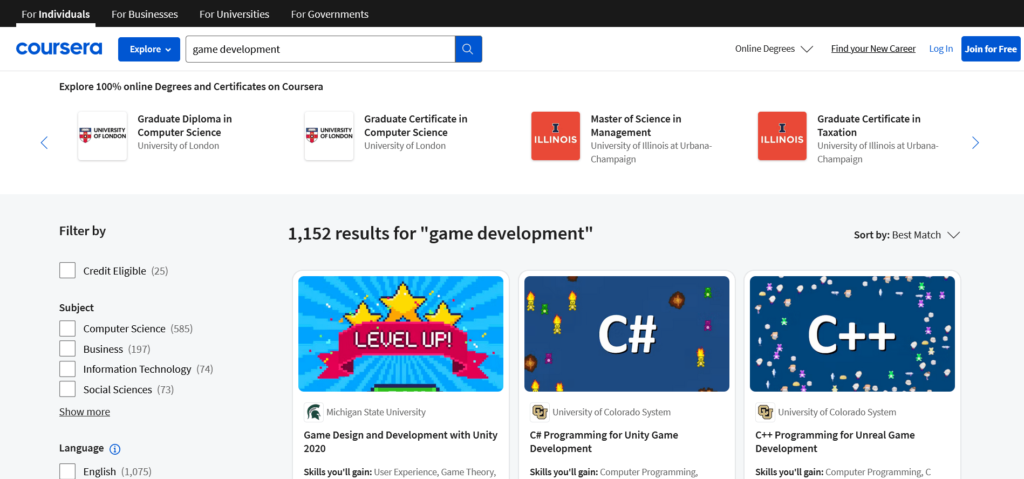
Coursera collaborates with renowned universities and institutions to offer video game programming courses, ensuring a high standard of education. Learners can explore specializations in game development, programming languages, and even earn degrees in computer science – providing a structured and comprehensive education.
Pluralsight
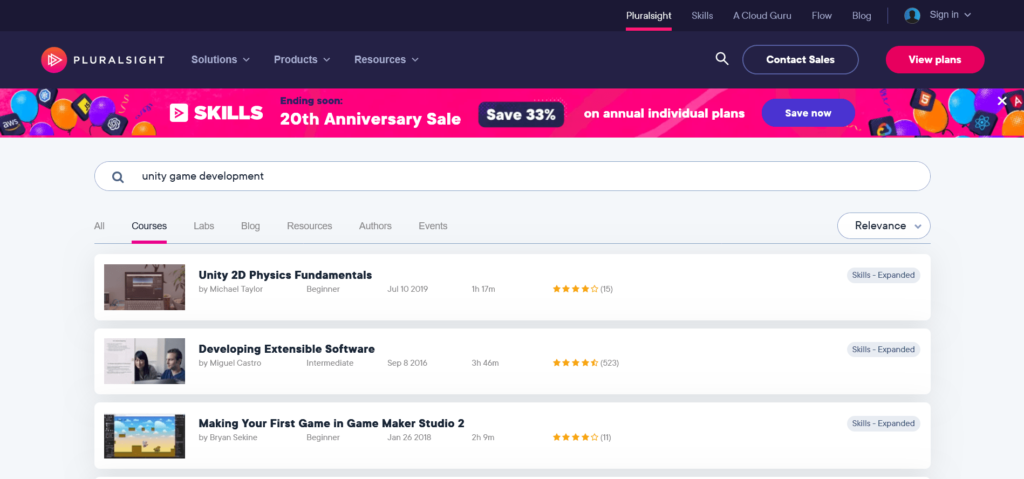
Pluralsight is a hub for in-depth technical courses, making it an ideal choice for those looking to delve deep into the technologies used in video game programming. Courses on C++, graphics programming, and game engines are available, providing a thorough understanding of the tools of the trade.
LinkedIn Learning
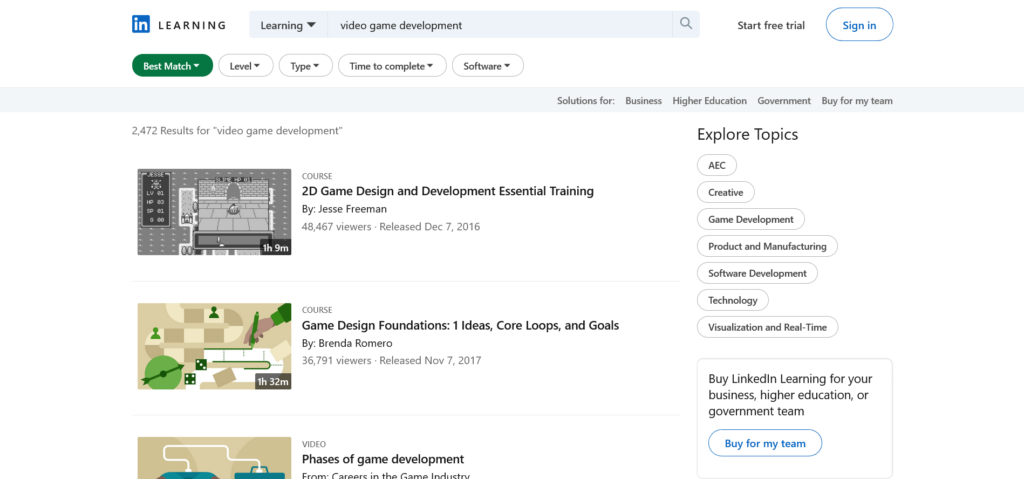
Formerly known as Lynda.com, LinkedIn Learning offers video game programming courses that emphasize practical application. With hands-on projects and real-world examples, learners can acquire the skills needed to succeed in the competitive field of game development.
Codecademy
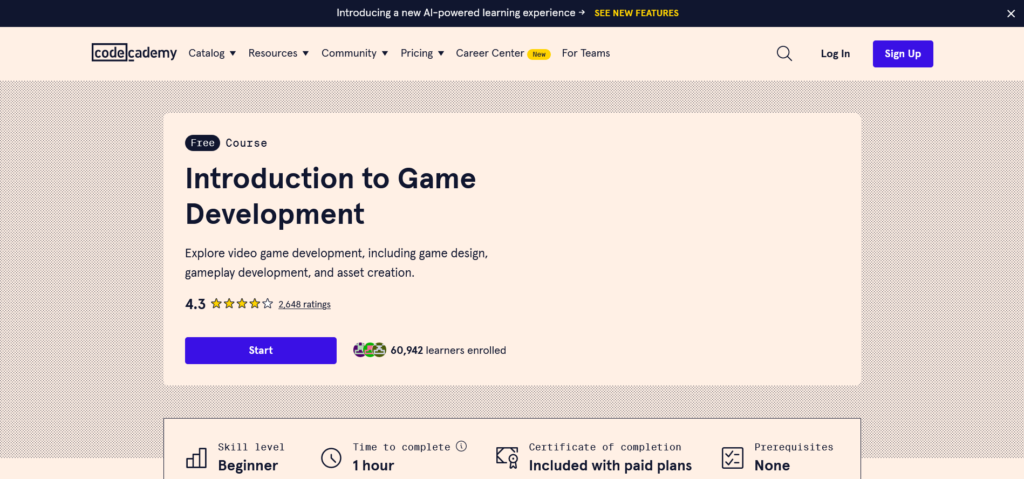
Codecademy focuses on interactive learning, making it an excellent choice for those who prefer a hands-on approach. Beginners can start with foundational programming languages and progress to specialized courses in game development, fostering a solid understanding of coding principles.
edX
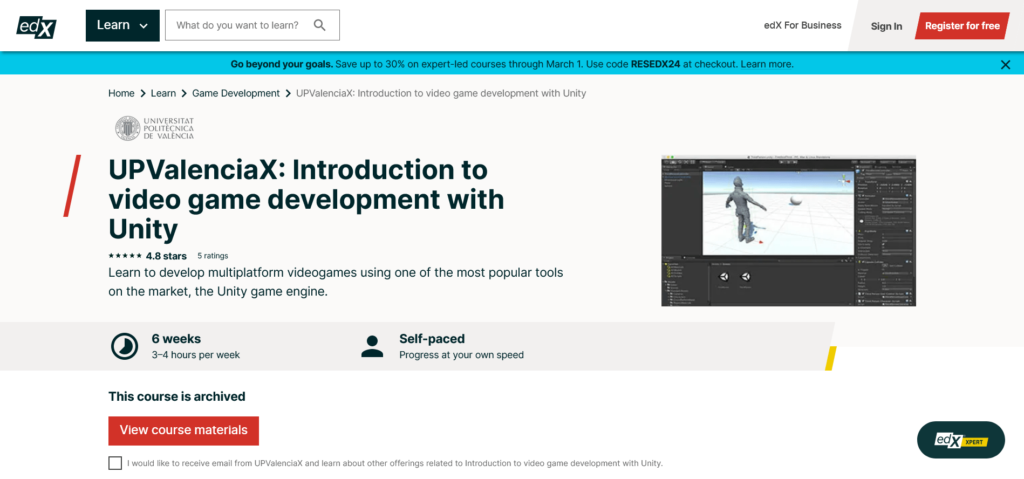
edX partners with universities worldwide to provide flexible and accessible courses. Learners can choose from video game programming courses offered by top-tier institutions, combining academic rigor with the convenience of online learning.
Skillshare
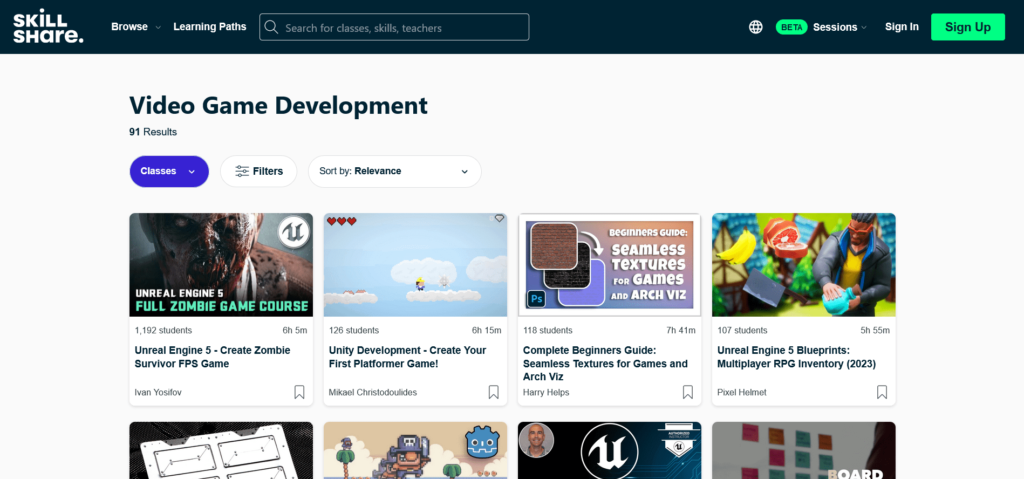
Skillshare offers a diverse range of creative courses, making it an excellent platform for those looking to explore the artistic side of game development. From game design fundamentals to coding essentials, Skillshare provides a holistic approach to video game programming.
Top 10 Most Searched Questions and Answers on How to Become a Video Game Programmer
1.What skills are essential to become a video game programmer?
To become a proficient video game programmer, essential skills include a strong grasp of programming languages (such as C++), solid understanding of mathematics (especially geometry and linear algebra), and familiarity with game development tools and engines like Unity or Unreal Engine.
2.Do I need a degree to become a video game programmer?
While a formal degree is not mandatory, having a degree in computer science, software engineering, or a related field can enhance your chances in the competitive gaming industry. Many successful video game programmers hold at least a bachelor’s degree.
3.Which programming languages are most crucial for game development?
The most crucial programming languages for game development include C++, Java, and Python. Mastery of these languages allows programmers to create efficient and high-performance game code.
4.How can I strengthen my mathematical skills for video game programming?
Strengthening mathematical skills for video game programming involves self-study and practice. Online platforms like Khan Academy and MIT OpenCourseWare offer excellent resources to improve skills in areas such as geometry, trigonometry, and linear algebra.
5.What are the best online resources for learning video game programming?
Online platforms like Codecademy, Udemy, and Khan Academy provide comprehensive courses for beginners in video game programming. Additionally, official documentation and tutorials from game development engines like Unity and Unreal Engine are valuable resources.
6.Is specialization necessary in video game programming?
Specializing in a niche within video game programming, such as graphics programming, gameplay programming, or artificial intelligence, can enhance your expertise and make you a sought-after professional. Identify your interests and strengths to determine your specialization.
7.How can I build a strong portfolio for video game programming?
Building a strong portfolio involves creating a variety of game-related projects showcasing different programming skills. Include projects that highlight graphics rendering, physics simulations, and AI implementation to demonstrate your versatility to potential employers.
8.Are game jams beneficial for aspiring video game programmers?
Participating in game jams is highly beneficial for aspiring video game programmers. These events provide opportunities to collaborate with other developers, showcase your skills, and gain practical experience in a short time frame. Platforms like Global Game Jam and Ludum Dare host such events regularly.
9.What conferences or events should I attend to stay updated on industry trends?
To stay updated on industry trends, attend conferences such as the Game Developers Conference (GDC) and explore events hosted by organizations like the International Game Developers Association (IGDA). Networking at these events can open doors to valuable opportunities.
10.How can I land internships or entry-level positions in video game development?
Landing internships or entry-level positions in video game development involves creating a compelling resume, building a strong portfolio, and actively applying to opportunities. Networking with professionals in the industry and attending career fairs can also enhance your chances.
Top 10 Common Questions and Answers on Job Interview for Aspiring Video Game Programmers
Mastering the art of answering common interview questions for video game programming positions is a crucial step toward securing your dream job. By thoroughly preparing for these inquiries and tailoring your responses to showcase your skills and experiences, you can confidently navigate the interview process and stand out as an exceptional candidate in the competitive world of video game development.
1.Can you explain your experience with game development projects?
Answer: Begin by providing a brief overview of your experience, emphasizing any projects you’ve worked on. Discuss the technologies, programming languages, and game engines you’ve used. Highlight specific achievements, challenges overcome, and your role in contributing to the project’s success.
2.What programming languages are you most proficient in, and how do you use them in game development?
Answer: Enumerate the programming languages you are proficient in, such as C++, Java, or Python. Illustrate how you leverage these languages in game development, emphasizing their role in tasks like game logic implementation, AI programming, and optimizing performance.
3.How do you approach debugging and troubleshooting in game development?
Answer: Describe your systematic approach to debugging, including the use of debugging tools and methodologies. Emphasize your ability to identify and resolve issues efficiently, showcasing instances where your troubleshooting skills contributed to project success.
4.Can you explain the importance of optimization in game programming, and how do you optimize code for better performance?
Answer: Stress the significance of optimization in gaming, highlighting its impact on overall performance. Discuss techniques such as code profiling, memory management, and algorithm optimization. Provide examples of how you’ve optimized code to enhance game performance in past projects.
5.What is your experience with game physics and how do you implement physics simulations in your projects?
Answer: Detail your experience with implementing game physics, touching on concepts like collision detection, rigid body dynamics, and particle systems. Illustrate specific instances where you successfully implemented physics simulations to enhance gameplay realism.
6.How do you stay updated with the latest trends and technologies in the gaming industry?
Answer: Showcase your commitment to continuous learning by mentioning your engagement with industry blogs, attending conferences, participating in online forums, and regularly exploring updates from game development communities. Emphasize your enthusiasm for staying abreast of the latest industry trends.
7.Can you discuss a challenging problem you encountered in a project and how you resolved it?
Answer: Share a detailed account of a challenging problem you faced, emphasizing the problem-solving steps you took. Discuss the strategies you employed, the collaboration with team members, and the ultimate resolution, highlighting your adaptability and problem-solving acumen.
8.How do you approach collaboration with other team members, including artists and designers?
Answer: Stress the importance of collaboration in game development, underscoring your ability to communicate effectively with cross-functional teams. Share experiences where you successfully collaborated with artists and designers to bring a cohesive vision to fruition.
9.What inspired you to pursue a career in video game programming, and how does your passion drive your work?
Answer: Express your passion for gaming, detailing what inspired you to pursue video game programming. Connect your personal motivation to your commitment to delivering high-quality game experiences and how it fuels your dedication to continuous improvement.
10.How do you handle tight deadlines and prioritize tasks in a fast-paced game development environment?
Answer: Showcase your ability to thrive in a fast-paced environment by discussing your approach to prioritization and time management. Share examples of successfully meeting tight deadlines, emphasizing your adaptability and commitment to delivering results under pressure.
Two Video Game Programmer Resume Examples
Entry-Level Video Game Programmer Resume:
[Your Name]
[Your Address]
[City, State, ZIP Code]
[Your Email Address]
[Your Phone Number]
Objective:
Aspiring video game programmer seeking an entry-level position to leverage programming skills and passion for gaming in a dynamic and collaborative environment.
Education:
- Bachelor of Science in Computer Science
[University Name], [City, State]
Graduated: [Month Year]
Technical Skills:
- Programming Languages: C++, Java, Python
- Game Development Tools: Unity, Unreal Engine
- Mathematics: Strong foundation in geometry, trigonometry, and linear algebra
- Debugging and Optimization: Proficient in troubleshooting and code optimization
- Collaboration: Effective team player with excellent communication skills
Projects:
- Developed a 2D platformer game using Unity, implementing player controls, enemy AI, and level design.
- Created a physics-based simulation for a mobile game, showcasing expertise in rigid body dynamics and collision detection.
- Contributed to a team project using Unreal Engine, focusing on graphics programming and optimizing code for performance.
Internship Experience:
- Software Development Intern
[Company Name], [City, State]
[Month Year] - [Month Year]
- Assisted in the development of a mobile game, collaborating with senior developers to implement gameplay features.
- Conducted debugging and troubleshooting, resolving issues to ensure a smooth gaming experience for users.
Certifications:
- Unity Certified Developer
- Java Programming Certification
Extracurricular Activities:
- Member of the Game Development Club, participating in collaborative game jams and networking events.
- Regular contributor to open-source game development projects on GitHub.Experienced Video Game Programmer Resume:
[Your Name]
[Your Address]
[City, State, ZIP Code]
[Your Email Address]
[Your Phone Number]
Objective:
Experienced video game programmer with a proven track record of success in developing innovative and high-quality games. Seeking a challenging role to contribute technical expertise and leadership skills to a dynamic game development team.
Professional Experience:
- Senior Game Programmer
[Game Studio Name], [City, State]
[Month Year] - Present
- Led a team of programmers in the development of a critically acclaimed action-adventure game for PC and console platforms.
- Implemented core gameplay mechanics, AI systems, and multiplayer functionality, contributing to the game's commercial success.
- Conducted code reviews, mentored junior developers, and provided technical guidance to ensure project milestones were met.
- Game Programmer
[Previous Game Studio], [City, State]
[Month Year] - [Month Year]
- Contributed to the development of a mobile game, focusing on character animations, user interface (UI), and in-game mechanics.
- Successfully integrated third-party libraries for enhanced graphics rendering and performance optimization.
- Collaborated with cross-functional teams to ensure seamless integration of audio, visual, and gameplay elements.
Technical Skills:
- Programming Languages: C++, C#, Java
- Game Engines: Unity, Unreal Engine
- Graphics Programming: Shaders, OpenGL, DirectX
- AI Programming: Pathfinding, Behavior Trees
- Networking: Multiplayer game development, server-client architecture
- Debugging and Optimization: Proficient in identifying and resolving performance issues
Education:
- Bachelor of Science in Computer Science
[University Name], [City, State]
Graduated: [Month Year]
Certifications:
- Unity Certified Expert Programmer
- Advanced C++ Programming Certification
Professional Memberships:
- Member of the International Game Developers Association (IGDA)
- Attendee and speaker at industry conferences such as the Game Developers Conference (GDC)
Publications:
- Contributed articles on advanced game programming techniques to industry publications.
Projects:
- Developed and released [Game Title], a mobile game that received [number] downloads and positive reviews.
- Implemented a custom game engine for an experimental VR project, showcasing expertise in VR game development.
References:
Available upon request.Conclusion
Becoming a video game programmer requires dedication, continuous learning, and a passion for the gaming industry. By following these steps, you can lay a solid foundation for a successful career in video game development. Remember that the journey may be challenging, but the rewards of contributing to the creation of immersive and captivating virtual worlds make it all worthwhile.















